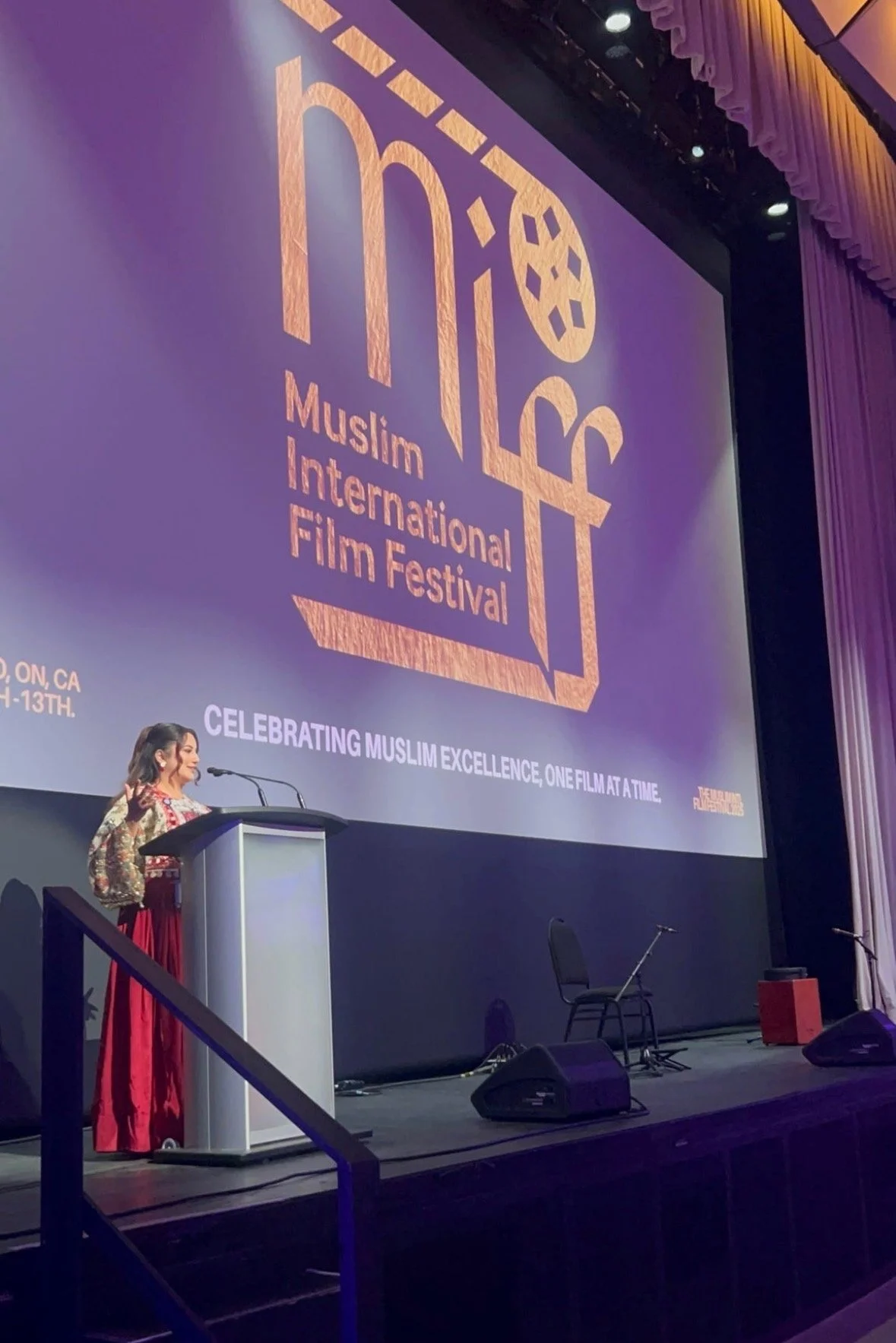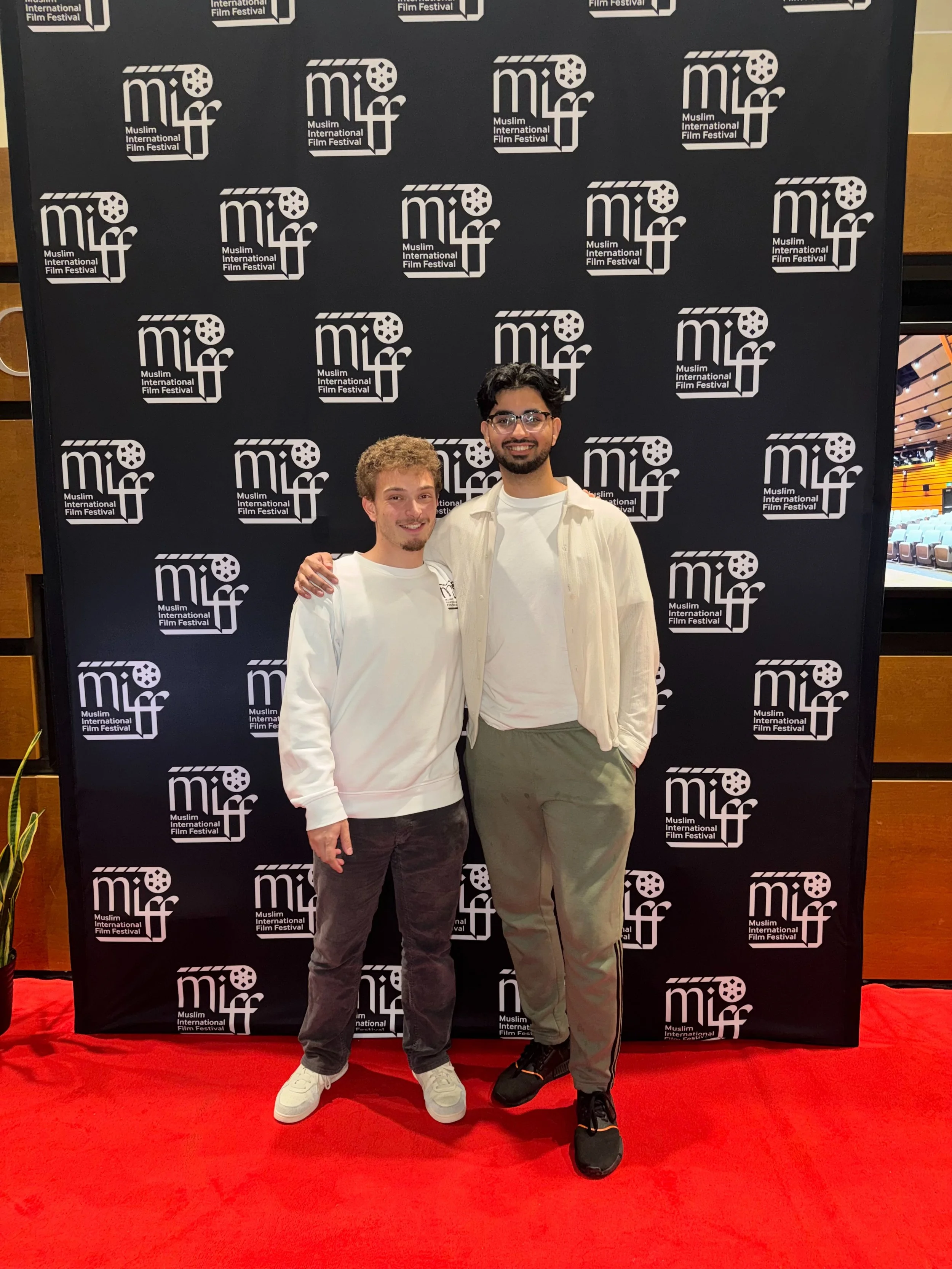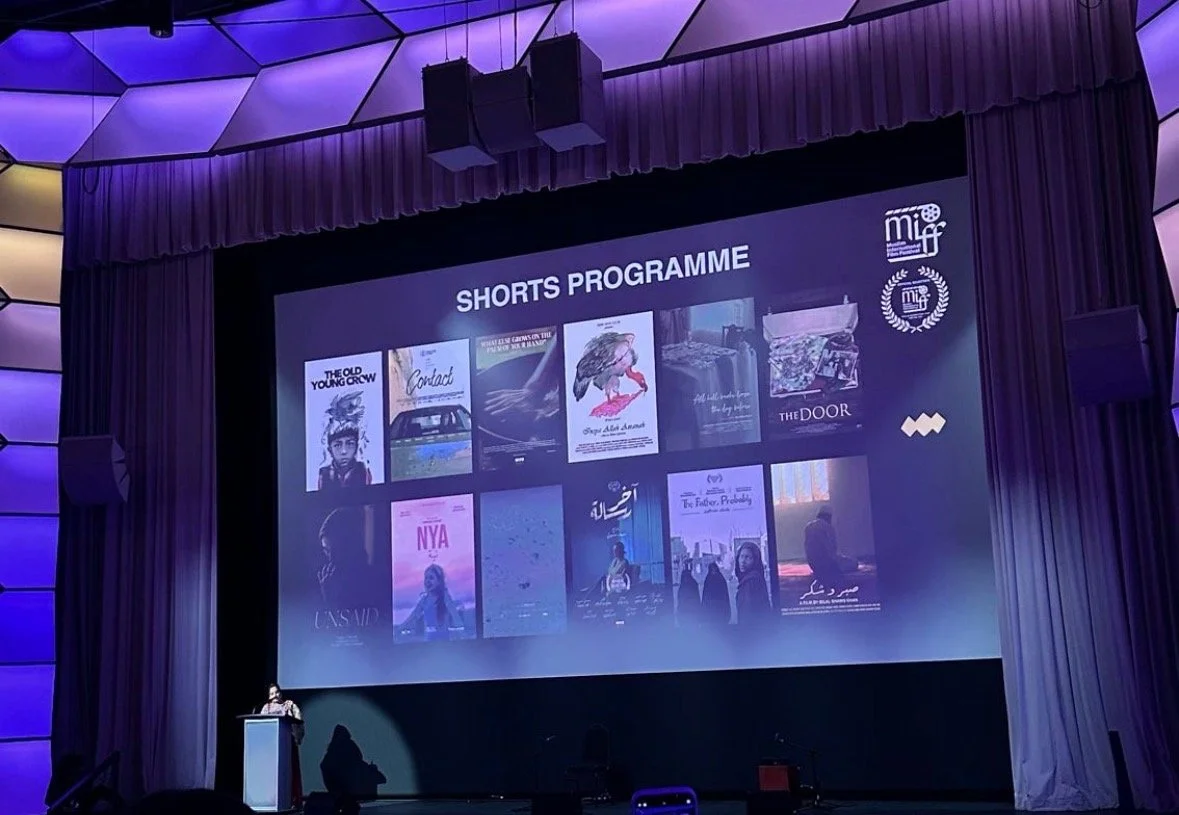Muslim International Film Festival 2025: A Retrospective
For three years the Muslim International Film Festival existed entirely on my computer. I helped with the festival’s film selection three thousand miles away in San Francisco, working with a lovely team of people who I only knew through a screen. I never really understood why I spent so much of my time and felt so passionately about an organization that felt so far away. But last week, I finally made it to Toronto, and started to understand why I'd flown across the continent for this. MIFF is a one of a kind space where Muslims can stop performing their humanity for others and simply live it.
I love cinema because it invites empathy effortlessly. You can sit in a dark room and live through someone else’s eyes without needing permission or explanation. For two to three hours (usually), understanding transcends language, supersedes argument, and arrives in full. Cinema’s radical promise is that we can truly understand each other across cultures, borders, and languages without having to go through the exhausting work of translation. But that promise breaks when every frame carries the weight of representation: when Muslim filmmakers can't simply make films because they're too busy proving Muslims deserve to make films, when a character’s hijab needs to represent for all Muslim women, when a family's prayer or absence becomes a referendum on Islam itself, when the magic of movies gets suffocated by the burden of being singular, of being The Muslim Film at a festival, crumbling under the weight of explaining an entire world rife with diversity to audiences who've already decided what they know.
MIFF firmly rejects that contract. Core to its DNA is the understanding that being Muslim is about who you're becoming, not the boxes that you check. Islam exists to give Muslims accountability in striving for perfect good character rather than policing it. In its truest form Islam becomes less about ritual precision and more about whether you're building a world slightly less cruel than the one you inherited. These values don't require perfect Arabic or any specific costume of piety. They only ask that you try. And MIFF trusts (actually trusts) that if these values resonate with you and if you believe that Muslim stories deserve to exist on their own terms, then you belong. No one measures your religiosity against a rubric. The space simply assumes that if you showed up, you're meant to be here.
When you're not carrying the weight of being the only Muslim film and when dozens of other films are making dozens of other choices, the burden of representation dissolves. Your protagonist's choices become their own. Your family's faith belongs to them specifically. Muslim cinema already exists here in all its contradictory particularity. The baseline is assumed, and now we can discuss whether the work is actually good.
Ali (left) with Abdul Muqeet (right), director of film selection for MIFF
This year’s film slate was extremely rich and diverse. It’s tough to write about our selections without any bias, given that I played a part in their selection, but I’m truly proud of what we curated. Titles included six films ranging from Jafar Panahi’s latest, It Was Just an Accident, fresh from Cannes, to Laila Abbas’ Thank You for Banking with Us, weaponizing heist mechanics against capitalism. Each feature tackled its highly specific own world, unconstrained by the pressure of speaking as a monolith. The shorts programs varied from experimental to documentary to narrative, from festival polish to raw phone footage. The range itself becomes the argument. Muslim cinema contains multitudes because Muslims contain multitudes.
I've spent years existing in a shapeshifting limbo, compartmentalized pieces of myself depending on the room. Conservative Muslim spaces police your observance, measure your practice against someone's narrow ruler, make you feel perpetually inadequate. Non-Muslim spaces treat your existence as anthropology, every gesture requiring footnotes. Even progressive Muslim spaces often just swap conservative surveillance for liberal surveillance, different rules but same fundamental distrust.
For four days, I watched people arrive wearing the same armor I recognize in my mirror, that careful calibration of self, that exhausting awareness of which parts to hide. The gaze at MIFF turns inward, not in insularity but in refusal to organize the entire enterprise around the imagined discomfort of those who might not understand. This refusal begets aesthetic freedom. When you're not translating yourself in real time, when you're not filing down edges for easy consumption, you make entirely different work. You can whisper when mainstream cinema demands shouting. You can be specific and strange and entirely yourself, and you can trust that your audience gets it.
MIFF understands that someone who hasn't prayed in months might still carry Islamic teachings about justice in their bones. That someone who doesn't identify as Muslim at all might share these values and belong here because of it. The boundaries are porous, and their porousness is where they find beauty. Community forms not around uniformity of practice but around shared commitment to building something worthy.
I flew across the country to see if it was real. If a space could exist where I didn't have to perform acceptable fragments of myself. Where Muslim films could be discussed as films instead of cultural evidence. Where the values I learned to love about Islam, justice, complexity, care, could matter more than their performance.
In a world where everyone demands that Muslims constantly prove their humanity, MIFF assumes it. And in that assumption, is a space for us to be perfectly human. In Toronto, I found a space for me to be unpaologetically muslim and a reminder for why I’m so in love with the religion that I chose. The festival will return in November 2026 for a seventh year. I'll be there, whole. I encourage you to, as well.



